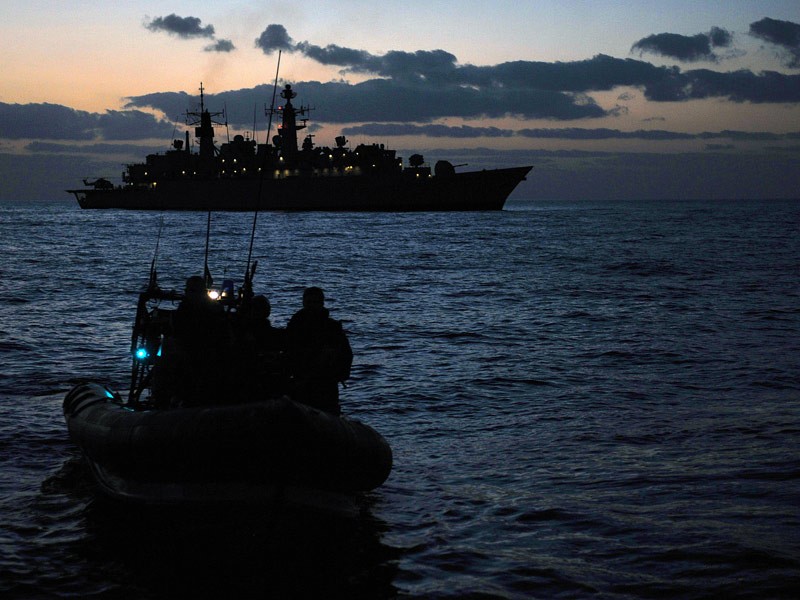7 suspects arrested after the attack on Cap Saint Vincent (update3)
(BRUSSELS2) As soon as the alert was given after the attack on the Breton tuna boat "Cape St. Vincent", 350 miles off Mogadishu, the German frigate Karlsruhe (part of the EU anti-piracy fleet "Atalanta") was ordered to set sail for the scene of the attack. the indications given by the Breton fishing boat, he did what is called in maritime language "a hunting road". And a helicopter from the Spanish frigate Canarias took off."Two fast skiffs were located fleeing the area of the attack", according to Atalanta HQ. "The helicopter then fired warning shots. The skiffs stopped." The European military observed that the suspects "threw various materials overboard, no doubt piracy paraphernalia". After boarding by the RHIB visiting Karlsruhe, the European soldiers "found seven people on board. The Breton tuna boat (which had continued on its way) was then asked to return in order to identify the attackers. After their declarations, the seven pirates are detained on board the Karlsruhe" (1). It should be noted that - contrary to information from Ecoterra - "no injuries were reported among those apprehended“said a spokesperson
from Atalanta. Same story on the side of the General Staff of the French forces deployed in the Indian Ocean. "There are no casualties“I was confirmed.
Destination Kenya? The destination of the pirates could be Kenya if it agrees to take the request into account. "For us, it was therefore important that the fishermen and the military could identify the skiffs“says a spokesperson for Atalanta. Essential proof to avoid a refusal from the Kenyan authorities. The military police officer (Feldjäger) who is specially committed inside the German frigates to carry out this work of “federal police“, then proceeds according to a procedure developed by Atalanta, a "check list" of different points to review, established "in accordance with the judicial system and the evidence requested by the Kenyan authorities" (in application of theEU-Kenya pirate transfer agreement). But, for the moment (16 p.m.), no decision has yet been made, I was told at Atalanta HQ. Legal and policy advisers are working on the issue directly.
(1) "In the afternoon of October 27th 2009, 350 nautical miles east of Mogadishu, Somalia, a French Fishing Vessel was attacked by pirates in two attack skiffs. (...) The EU NAVFOR German warship FGS Karlsruhe, on anti-piracy patrol in the area, was ordered to set course to the attack position. Simultaneously, the helicopter of EU NAVFOR Spanish warship ESPS Canarias, also on anti-piracy patrol, was launched and relocated two fast attack skiffs trying to flee the area of the attack. The helicopter fired warning shots to stop both skiffs, after which the pirates stopped and were seen throwing items, presumably pirate paraphernalia, overboard. On arrival of FGS
Karlsruhe her boarding team secured both skiffs, and found seven persons on board of the two skiffs. The French Fishing vessel was requested to return to the scene to identify their attackers. Upon their statements the seven suspected pirates were detained on board FGS Karlsruhe.


Comments closed.